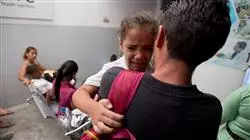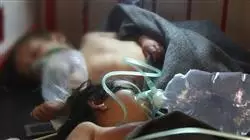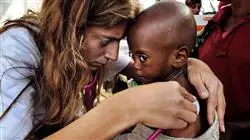University certificate
The world's largest faculty of medicine”
Description
Improve your knowledge through this program, where you will find the best didactic material with real clinical cases. Learn here about the latest advances in the specialty to be able to perform a quality medical practice"

Infectiology is constantly undergoing changes. At the epidemiological level, with the emergence or re-emergence of certain diseases that are unknown or have little practice (zika, chikungunya, hemorrhagic fevers, among others), others that have fallen into oblivion or are unknown to younger physicians such as diphtheria, measles, whooping cough or flaccid paralysis associated with the polio vaccine virus.
At the therapeutic level, the emergence of resistance (BLEES, MRSA, carbapenem-resistant enterobacteria, etc.), often caused by our unwise and rational use of drugs, creates problems for the clinician when it comes to initial empirical treatment in certain situations.
At the diagnostic level, the increasingly frequent availability of new techniques allows a more rapid etiological diagnosis or by complementary techniques that require clinical diagnostic orientation such as ultrasound, computed tomography or magnetic resonance imaging. Without forgetting the support that the clinician has in laboratory tests that determine acute phase reactants such as procalcitonin or C-reactive protein, which are sometimes given excessive importance, forgetting that we treat patients and not laboratory results.
All this means that, in order to attend these patients with the maximum guarantee, the clinician must maintain a continuous training, even if they are not a specialist, since, as we have mentioned, the percentage of visits or interconsultations related to the infection is very high. If we add to this the increasing amount of information provided by parents, sometimes not always contrasted, professional updating becomes essential to be able to provide adequate information according to the current scientific evidence at all times.
Update your knowledge through the postgraduate certificate in Prevention and Treatment of Infections Related to Social Problems in Childhood, in a practical way and adapted to your needs"
This postgraduate certificate in Prevention and Treatment of Infections Related to Social Problems in Childhood contains the most up-to-date scientific program on the market. The most important features of the course are:
- Clinical cases presented by experts in infectology. The graphic, schematic, and eminently practical contents with which they are created provide scientific and practical information on the disciplines that are essential for professional practice
- Diagnostic and therapeutic novelties on the prevention and treatment of infections related to social problems in childhood
- Algorithm-based interactive learning system for decision-making in the presented clinical situations
- With a special emphasis on evidence-based medicine and research methodologies in Prevention and Treatment of Infections Related to Social Problems in Childhood
- All of this will be complemented by theoretical lessons, questions to the expert, debate forums on controversial topics, and individual reflection assignments
- Content that is accessible from any fixed or portable device with an Internet connection
This Postgraduate Diploma may be the best investment you can make in the selection of an up-to-date program for two reasons: in addition to updating your knowledge in Prevention and Treatment of Infections Related to Social Problems in as childhood, you will obtain a Postgraduate Diploma from TECH Global University"
Forming part of the teaching staff is a group of professionals in the world of Pediatric Infectology, who bring to this course their work experience, as well as a group of renowned specialists, recognised by esteemed scientific communities.
The multimedia content developed with the latest educational technology will provide the professional with situated and contextual learning, i.e., a simulated environment that will provide immersive training program to train in real situations.
This program is designed around Problem Based Learning, whereby the student must try to solve the different professional practice situations that arise during the course. For this reason, you will be assisted by an innovative, interactive video system created by recognized experts in the field of infectious diseases and with great teaching experience.
The postgraduate certificate includes real clinical cases and exercises to bring the development of the postgraduate certificate closer to the doctor´s clinical practice"

Take the opportunity to update your knowledge in Pediatric Infectious Diseases and improve your patient care"
Objectives
The main objective of the program is the development of theoretical and practical learning, so that the physician can master pediatric infectology in a practical and rigorous way.

This refresher program will generate a sense of security in the performance of the physician's praxis, which will help you grow personally and professionally"
General Objective
- Update the knowledge of the pediatrician or the physician who treats children with social problems, through the latest advances in the field of Primary Care or Hospital Infectious Diseases, in order to increase the quality of care, the safety of the physician and achieve the best outcome for the patient
Specific Objectives
- Determine the infectiological performance of children from low-income countries, sub-Saharan, refugees, affected by poverty
- Explain the practical management of parasitic diseases
- Define the responsibility of the clinician in prescribing antibiotic treatment and its consequences
- Identify the main groups of antibacterials, antivirals and antifungals with their innovations and the judicious and rational way of drug choice
- Describe the optimal and rational use of antibacterials against multidrug-resistant bacteria
- Describe the current use of vaccines, doses, intervals, side effects, responses to anti-vaccine movements
- Describe the indications for antibiotic prophylaxis and post-exposure prophylaxis
- Define the situations in which a contact study is indispensable
- Explain the ethical implications and repercussions in the research of antibacterial, antiviral, antifungal drugs or vaccines

Take advantage of the opportunity and take the step to get up to date on the latest developments in Prevention and Treatment of Infections Related to Social Problems in Childhood”
-







